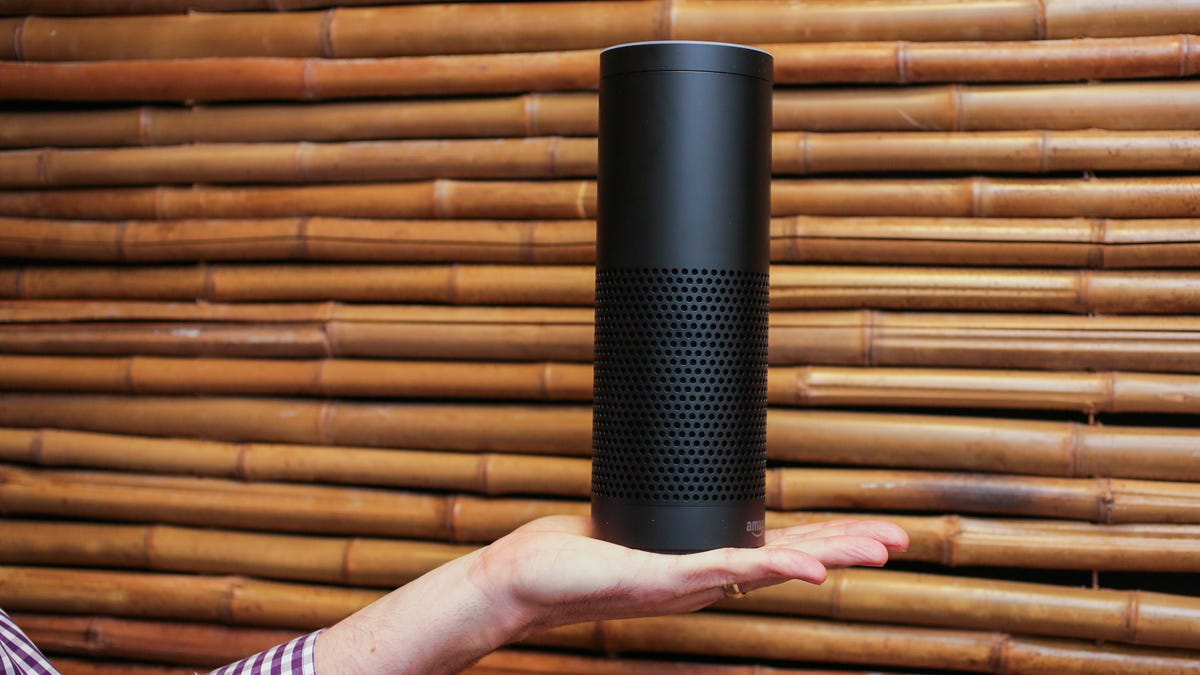Amazon makes Echo voice assistant available to the masses
It had been available on an invite-only basis. Starting next month, anyone can bring it home, with devices shipping out for $180.

The Amazon Echo is ready for prime time.
After seven months of keeping its new voice-activated speaker as an invitation-only product, Amazon on Tuesday opened orders of the device to anyone interested. The Echo starts shipping out to all customers July 14 for $180, replacing the previous pricing of $199 for regular customers and $149 for Amazon Prime members.
"We're excited to get Echo into the hands of even more customers and continue to invent new features and experiences," Greg Hart, vice president for Amazon's Echo, said in a statement.
The Echo brought the e-commerce giant into the competitive market of voice assistants. Apple's Siri, Microsoft's Cortana and Google's Google Now speech-recognition software all work in smartphones to allow users to make calls or bring up driving directions. The big difference is that Amazon's Alexa software, which powers the Echo, isn't used in a phone (at least not yet) and instead is in a plug-in speaker that stays at home.
That allows the Echo to act as a more dedicated hub for the connected home, able to turn on a lamp using a Belkin WeMo light switch, play Pandora or iHeartRadio music, or reorder kitchen supplies on Amazon.com by simply asking the device. The device can remain on at all times, with users able to activate Alexa by simply saying her name and then asking her to complete a task.
Some of the Echo's features can be replicated via a smartphone, so time will tell whether consumers will want to pay for a separate device made specifically for the home.
Then again, it will be hard to tell what the demand turns out to be for the Echo, since Amazon usually doesn't reveal sales figures for specific products.
"My sense is there's significant demand for it," said David Mitchell Smith, a Gartner analyst covering Amazon, adding that he didn't have any hard numbers. "It's not one of those top-grossing consumer products, but it certainly something consumers want."
He added that the Alexa speech-recognition software could be the part of the Echo with the most potential, with the platform perhaps finding its way into televisions or phones. Amazon has already added a speech-recognition feature to its Fire TV streaming setting-top box.
The Echo joins a handful of devices Amazon has offered in an effort to create deeper connections with its customers, bringing its core online storefronts to its Fire tablets, Kindle e-readers and Fire TV streaming boxes. The company also came out with a smartphone, the Fire Phone , for the first time last year, but the device so far has been a flop.
When the Echo came out in November, essentially as a pilot product by invitation only, it had only a handful of features and Amazon was still tweaking the product. At that time, the Echo offered a selection of music services, information from Wikipedia and the Web, timers and alarms, weather and news, and to-do lists. Since then, it's integrated with connected-home products from Belkin and Philips, provided access to Google Calendar, added information on sports scores and traffic, and connected to Amazon.com to let users re-order certain products. Amazon also partnered with Audible to let people listen to their audiobooks by saying, "Alexa, read my book."
Going forward, Gartner's Smith said, Amazon may find more devices for Alexa to power and more links between the Echo and Amazon's online store, allowing the company to make more sales through the device.
"I think it has potential," he said of the Echo, "but the technology has potential beyond the device itself."

